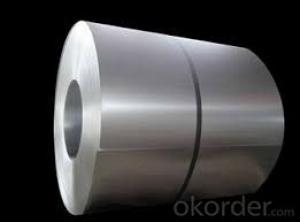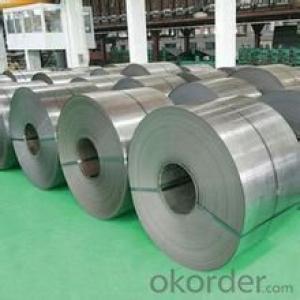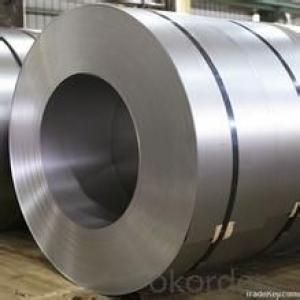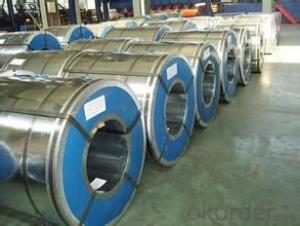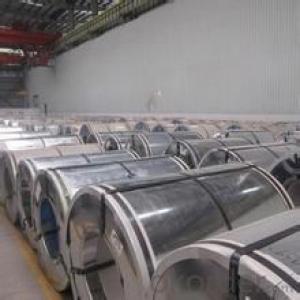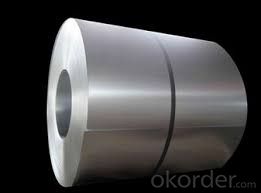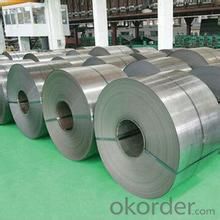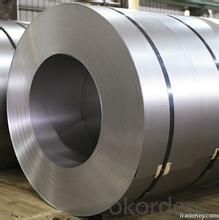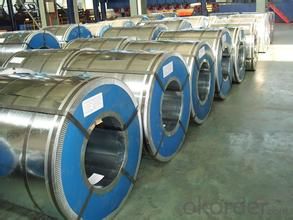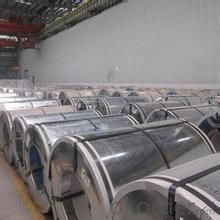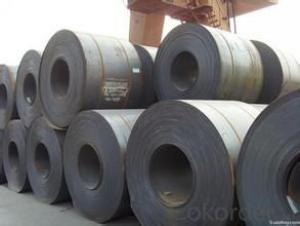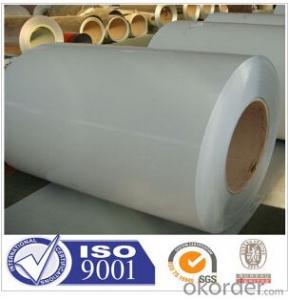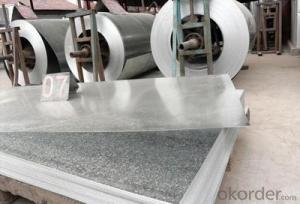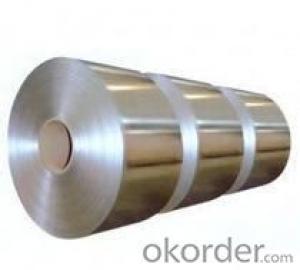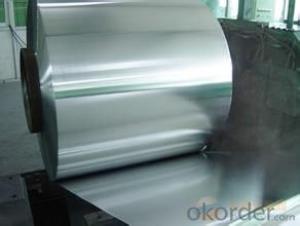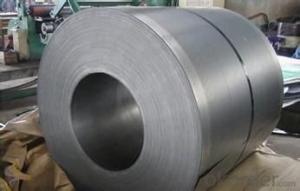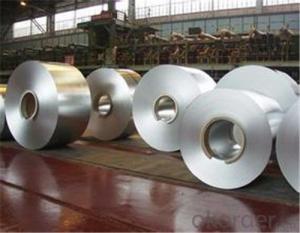cold rolled steel coil / sheet / plate -SPCG in CNBM
- Loading Port:
- Tianjin
- Payment Terms:
- TT OR LC
- Min Order Qty:
- 100 m.t.
- Supply Capability:
- 5000000 m.t./month
OKorder Service Pledge
OKorder Financial Service
You Might Also Like
Description:
The raw material of cold rolled steel coil/sheet is high quality hot rolled product, and after pickling, kinds of new technology and new process of global cold rolling production have been applied. Therefore the manufacturing, home appliance, automobile etc.
Specification:
COLD ROLLED STEEL | |
Thicknenss | 0.10mm-4.00mm |
Width | 600mm-2000mm |
Sheets length | 1200-6000mm |
Coil inner diameter | 508-610mm |
Surface treatement | matt finish/bright finish,oiling/dry, bright anneal/black anneal |
Coil weight | 3-5t |
Application:
1. Refrigerators, cabinets, power distribution baords and drums.
2. Automobile floor and roof panels.
3. Automobile fenders and quarter panels
4. Automobile fenders and quarter panels
Images:
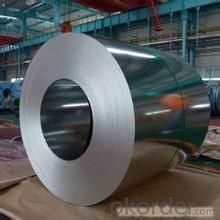
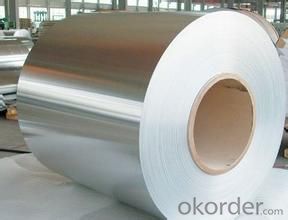
Our products enjoy an excellent reputation and have been exported to Europe, South-America, the Middle-East, Southeast-Asia, Africa and Russia etc.. We sincerely hope to establish good and long-term business relationship with your esteemed company.
FAQ
1. Do you have QC team?
Yeah, sure, our QC team is very important, they will keep the quality control for our products.for quality inspection every day.
- Q: What is the maximum thickness of steel coils?
- The maximum thickness of steel coils can vary depending on the specific application and manufacturing process. However, in general, steel coils can have a maximum thickness ranging from a few millimeters to several centimeters. The thickness is typically determined by factors such as the intended use of the steel coils, the type of steel being used, and the capabilities of the manufacturing equipment.
- Q: Which steels were origianally designed to be used to cut and shape metals and other materials?- alloy steel- high carbon steel- carbide steel- tool steelthanks
- In your choices carbide steels are used for milling and drilling purposes and high speed steel are used in lathe operations. For shaping the tools, tool grinding machines are used and for initial sharing dyes are used.
- Q: I bought stainless steel appliances a year ago. I have two kids who like to put their hands all over the fridge and they always leave dirty marks all over it. I bought stainless steel cleaner but it doesn't do a good enough job. Anyone know any other cleaning remedies?
- Use stainless steel cleaner which you can get at hardware stores, Home Depot, and Lowes.
- Q: How are steel coils used in the production of electrical conduits?
- Steel coils are used in the production of electrical conduits as they serve as the raw material for manufacturing these conduits. The steel coils are processed and shaped into cylindrical tubes, which are then used to protect and enclose electrical wires, ensuring safe and efficient transmission of electricity.
- Q: pros and cons of stainless steel and carbon steel swords
- Well generally Stainless steel blades are machine made and are of a display quality.. so expect looks, but don't expect quality or functionality from one. From carbon steel, I'd say you'd be looking at swords for practitioners of a sword art, reenactment, and collector quality blades. Stainless Steel Pros: Good for short blades like kitchen knives, cheap, won't easily rust or corrode. Cons: Long blades like swords become increasingly brittle and can snap with light use, most lack actual tangs(part of the blade that keeps the blade in the handle.) and are just welded onto a wire that[if broken} will send the blade out like a missile when swung, these are cheap display quality only. Carbon Steel Pros: Are usually much stronger and of a higher quality than their stainless counterparts, are often handmade by professional sword-smiths, no two blades are alike, fully functional work of art. Cons: Requires responsible care and maintenance, will corrode and rust easier, can be much more expensive.
- Q: ive made lots of knives but they are dark and not shiny. how do i polish a knife and make it shiny
- Look for buffing compound at the hardware store. Home depot lowe's od even Wal-mart/ There is a compound for steel and for iron. I t will not make iron real shinny but it will make it look good. This stuff is to be used with a buffing wheel but I have used it on rags and it work great.
- Q: I'm going to buy a guitar for beginners and i wondered what strings are better steel or nylon?
- Musical type speaks volumes on the subject of this problem. Folks that want high quantity shall be unhappy with unamplified nylon string guitars. From my point of view, the elemental difference between steel and nylon is that this: steel strings ring and nylon strings resonate. The volume produced via steel is quite often a lot bigger than nylon however, to my mind-set, the sound resonance produced with the aid of the wooden of your guitar is essentially masked by steel strings. In case you have a decently made guitar (generally, around a thousand dollars and up), the sound interaction between the wooden and the strings in a nylon guitar is magical across the whole frequency range. With a steel string guitar, the sound produced via the vibrating string overpowers the timber resonance at all but low frequencies. In my view, i'll take a nylon string guitar any day for the sensitivity won from the interplay between timber and vibrating string.
- Q: How are steel coils used in the manufacturing industry?
- Steel coils are used in the manufacturing industry for a variety of purposes, including the production of various steel products such as automotive parts, construction materials, household appliances, and machinery components. These coils are often processed and formed into desired shapes through techniques like cutting, bending, and welding to create finished products that are durable, strong, and suitable for various applications in different sectors.
- Q: What are common uses for steel coils?
- Steel coils are commonly used in various industries for purposes such as manufacturing automobiles, appliances, construction materials, and metal fabrication. They are also used in the production of pipes, tubes, and structural components, making them a versatile material for a wide range of applications.
- Q: Are steel coils affected by temperature changes?
- Yes, steel coils are affected by temperature changes. Steel is a metallic material that expands when heated and contracts when cooled. Temperature fluctuations can cause steel coils to expand or contract, which may impact their dimensions, mechanical properties, and overall performance. It is important to consider and manage temperature changes to ensure the proper functioning and durability of steel coils.
Send your message to us
cold rolled steel coil / sheet / plate -SPCG in CNBM
- Loading Port:
- Tianjin
- Payment Terms:
- TT OR LC
- Min Order Qty:
- 100 m.t.
- Supply Capability:
- 5000000 m.t./month
OKorder Service Pledge
OKorder Financial Service
Similar products
Hot products
Hot Searches
Related keywords
